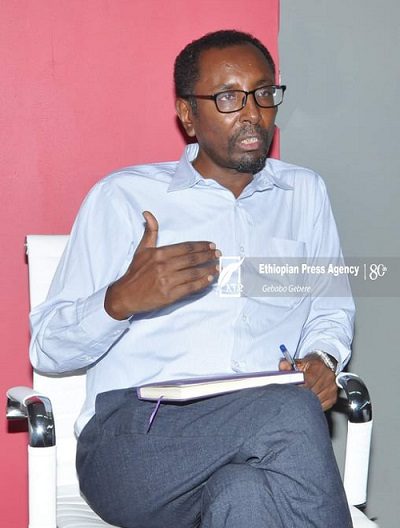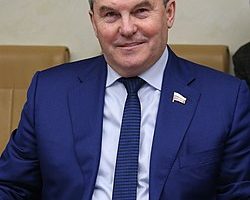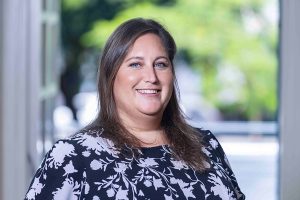
Ethiopia has been striving to build a democratic system for decades. Still, it is struggling to build a democratic system, ensure good governance, bring about national consensus on major issues, ensure peace and prevent conflict among others.
One of the steps to build a democratic system is allowing a multi-party system in the country where political parties with diverse views and agenda can participate actively. In addition, people should also be able to engage in expressing their views clearly to the public so that they can get acceptance of the public and take political power through people’s choice.
Yet major political actors in the country are said to be missing a good culture of conducting a debate. Due to the poor culture of debate even people and parties with closely related ideas and agenda are observed to criticize each other. But if the culture of debate in the country was well developed the parties are likely to argue on topic logically, ethically and in a manner that can give a lesson to the public and develop a democratic system.
Recently, Debebe Hailegabriel, lawyer, has taken the initiative to launch a debate show, entitled Habegar Debates, that invites people with selected knowledge and experience to speak on selected national topics like election, freedom of courts … etc.
The Ethiopian Herald Had interviewed Debebe on the signs of progress the debate show made so far and the role it played in laying a foundation for future debate practice in the country. Excerpts:
How do you see the experience of debate in Ethiopia, what inspired you?
During the last three years in the country is found under the transformation process. To pursue the process of change people need to express themselves freely to lead the change effectively. What we found out as a gap in the country in this regard is the poor culture of debate. This means, while it is important to address differences through dialogue to build a democratic system, what we see is polarized views, prejudice … etc.
The main aim of the program is to reflect that every issue has its perspective. In building a democratic system what we need is a diversity of thought and tolerance. If we don’t tolerate each other we cannot build democracy. There is growing dreadful thinking of complaining as to why a given person is allowed to debate. Hence we want to show that all of us are responsible for this country. But we need to discuss and understand each other and debate.
In the field of law debate is common practice. People discuss a given issue not only in court but also starting from law school. Our idea from inception is to develop the culture of debate. To allow relevant people to give an opinion on a certain issue. We want to show people that diversity of thoughts exists.
What inspired you to start the debate?
We were inspired by the Doha debate. It has the same format. In other countries, universities are in charge of such activities. For instance, there is a debating society at Oxford University. But we have not fully copied this, as we have tried to adapt it to the situation of our country.
What are the strength and weaknesses you observed?
During the last three months, we have seen some strengths and weaknesses. To start with the weaknesses the first one is people are not usually willing to engage in debate. They prefer to speak in their small circle. There is a limitation in sharing their knowledge and experience. The reason could be fear of criticism. Others also refuse to give a reason that their political party does not allow them to. But we allow debaters as individuals. The other challenge is people object why a given debater is invited. Yet we strongly denounce these ideas.
The strengths we saw is schools are participating actively. Especially we involve students who learn civic education. This is meant to nurture the culture of debate. Another improvement we saw is people at the beginning had the problem of keeping their speech to the time limit. But as we progressed we have seen some improvements. In addition, more people are these days coming to attend a debate with their initiative. People who attend our debate show through social media are also increasing.
Have you developed a charter to guide the debate?
There is ethical principle and guideline for this. For instance, it states what the debaters should observe during a debate, who should moderate the debate, etc. There is also a specific time limit for each debater.
How do you nominate people or debaters?
We select both moderators and debaters based on their stance rather than political affiliation. We aim at giving lesson for the people. It is difficult to run a debate on the ideas of a political party or an institution. There is also a board that regulates the work. They are in charge of making sure that the debate is neutral and professional. We choose a theme for the debate, and we decide who should debate on the specific topic. We evaluate whether the person has done research on the topic or has due experience. We also announce the topic and invite people through outlets like social media. The forum is open for anyone.
We may think about another format where political parties can participate. We have not run such a debate so far, but we have a plan. But our intention is not to allow political parties to promote their thoughts. There are many issues to debate about like economic, political issues. So we encourage debaters to forward their thoughts on the issues only representing themselves than the agenda of their political affiliation.
How do you prioritize issues, and make sure the debater is the right person for the topic?
We choose topics with the help of the advisory board. Individuals also suggest selecting topics. We make sure that the topic is timely and burning. About debaters, the forum is open for anyone interested and knows at the same time. For instance, some people may present themselves to debate. But we also scrutinize whether that person is the right one or not. Instead of passively waiting for debaters to come to us we also solicit typical resource persons on a certain issue. They could be university staff or government officials or the private sector. For instance, so far there are government officials who have participated in the debate.
What would you do in case two people are the right persons for a given topic?
But we have not encountered a situation where we faced two or more people to debate on the same topic. So far we have run about 16 debates, but we faced such overlapping only twice. Our interest is to bring new faces always. But if we think that if the person taking the chance for the second time on the same topic is educational for the people, there is no problem. The debate also promotes the debaters who were not known to have the knowledge and experience but are not known by the public.
“The debate helps to instill the idea that we can bring change through dialogue than force. Some people prefer to engage in a war of words from distance. But when they engage in debate their ideas are close or similar to each other. When we develop this culture we will find out that our thoughts are not debatable.”
The special feature of the program is that people are the judges. We are mulling over broadcasting the program for an audience outside the country. If it takes the ground the ideas raised would be shared by the people. Otherwise, the debate would be limited only among elites or academic debate which is not palatable for ordinary citizens.
Have you seen any change in the thoughts of people because of the debate?
Yes, when we begin we request people to vote on the possible conclusion of the debate topic or the idea they second. After the debate also request to vote. We have seen many people changing their minds after debates. This shows people change ideas when they are exposed to knowledge-based debates.
How is the participation of CSO’s in the deabtes conducted so far?
I cannot say that the CSO participation is enough. The program has a big implication for the CSO. For those who engage in human rights, good governance, peace, conflict prevention etc, it helps a lot. But the participation is very low. We hope this will improve. The limitation on our side is with the timing of the debate as it takes place during office hours. We have a plan to conduct the debate on weekends.
What is your future plan?
We do not want to limit such debate in Addis Abba alone. We want to involve other regions and cities. In addition, we want to broadcast our debate show through all other media. Further, we have an intention to make live transmission of the debate. We also want to establish a debating society. For the time being, I am running the show through my office. When we establish a debating society, it will have a legal personality. It will have permanent members who run the program sustainably.
Thank you very much for your time
Thank you!
BY ZEKARIAS WOLDEMRIAM
The Ethiopian Herald May 4/2021





